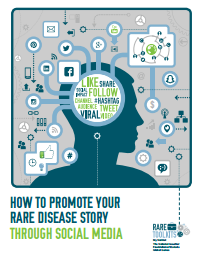Simulation activities bring multi-stakeholders together at #RareEU2016
Rare Disease Day, which was started in 2008 by
EURORDIS (the European Organization for Rare Diseases), has grown to include
participation from around the world. This year’s activities included a symposium in Brussels on
improving access to rare disease therapies. While there are over 7,000 unique rare diseases identified, the vast majority of
rare disease patients face limited to no treatment options and significant inequities in accessing care. In order to address these life threatening challenges, symposium organizers intentionally brought together stakeholders from diverse backgrounds, including patient leaders. The event focused on the European landscape but attracted a large number of representatives from outside the European Union. It has always been to the benefit of the rare disease community to collaborate globally and EURORDIS continues to lead the way, with events like the symposium and the recent launch of the
Rare Diseases International (RDI) global alliance.
The
Multi-stakeholder Symposium on Improving Patient Access to Rare Disease Therapies offered an inspiring lineup of speakers and panelists who eloquently highlighted best practices and broadened the understanding of what health technology assessment (HTA) means in action. Throughout the conference there were
repeated calls to ensure that patients remain at the centre of developments and recognition that
patient stories are critical to making good decisions in advancing therapies. The role of the Internet and new data management technologies were also promoted as key for gathering input from patients and increasing collaboration potential.
Right words aside, the inclusion of
simulation exercises is what brought the themes of the conference to life. Role playing sessions involved all attendees and gave everyone the chance to practice working together on a challenge. Simulations also let participants take on roles different from the ones they are typically responsible for playing. I played the part of decision maker and got to evaluate pricing and reimbursement of health technologies on behalf of the public plan. It was
a real thrill to be given a voting button and a level of power I’m unaccustomed to as a patient. At the same time, I also felt frustrated by the limited information I received to make important decisions and the time restraints placed on getting to a final decision.
Of course these scenarios were just games, but playing left me with
greater awareness of the quality of input needed from patients, to ensure decision makers can take this perspective properly into account. I also thought a lot about how difficult it must be for decision makers, to open themselves, to listen to stories from patients, while knowing that they aren’t in a position to always vote in favour of what patients want and need.
My takeaway from the symposium was greater empathy, for ALL the different players, working to make access to rare disease therapies viable. Patients should be at the centre but there are many voices that need to be heard, if we want to move forward together, to improve the lives of rare disease patients.
--












